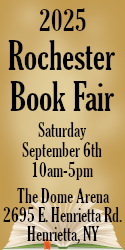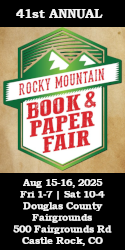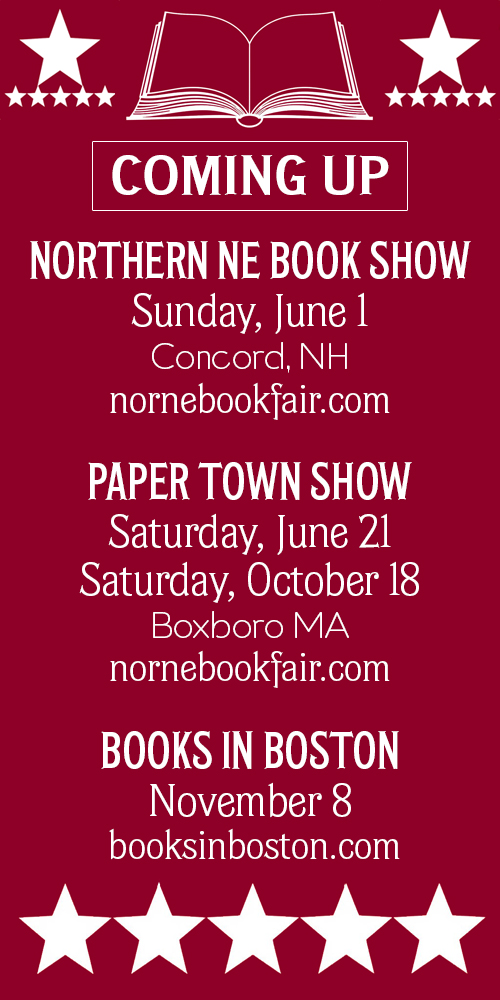Voting for Small Change
The two-year presidential campaign is winding down or, depending on how you look at it, just getting started but a lot of us are already saturated with election news-entertainment that’s generated a lot of heat but not much in the way of light. And there’s already talk about candidates who may be jockeying for 2012.
The last few years have brought us to an unhappy place, loosely chronicled by newspapers, books and the Internet. Yet through it all our favored television viewing, according to media experts, remains sports and “reality” show programming, while network news (bland though it may be) continues to lose audience. Occasionally we all need to escape from the real world and reality television seems to be the way many of us escape from reality these days. (For others it’s a more interesting and enjoyable form of escape to explore the various states of the first edition of Huckleberry Finn or better yet, re-read it). With so much going on in our own lives, it takes a lot of reading to keep up with what’s happening in the world, and if the last few years have taught us anything, it might be that what we do as a nation half way ‘round the world can come back to bite us in unexpected ways and in unexpected places.
With gasoline at around $4.00 a gallon (no big surprise there) and large parts of the economy beginning to feel the pinch, imagine what it would be like if interventionist foreign policy advisors (of both major candidates) and their cheerleaders in Congress get their way and we end up with four more years of the same. A few years from now might we be looking back to a time when gasoline at $5.00 per gallon looks like a bargain?
I talk with booksellers every day and right now some of them tell me they’re finding it harder to justify the cost of traveling any great distance to some of the regional book fairs either as an exhibitor or a buyer and consequently are cutting back on the number of fairs they attend. Also, the hyper-inflationary spiral in postage rates has nearly done away with much of the trans-Atlantic trade in ordinary second-hand books memorialized by Helen Hanff in 84 Charing Cross Road. Add to this competition from the Internet and the proliferation of charity book sales, and I think it clear that antiquarian book-selling will never be the same. (My wife is an antiques dealer who exhibits in one of central New York’s finest co-ops and she tells me the antiques business is also going through a rough patch). So whether we like it or not, the political world affects every business sooner or later, and if we had to choose a business logo, the ostrich would not be it.
I think books themselves will always be with us even though technology will continue to change the way they are made and sold. (Amazon’s “Kindle”, according to recent business reports, has turned out to be an unexpected hit and is already being talked about as the book world’s new iPod).
During the gilded age books were bought as furniture to line the library shelves of the well-to-do—sets of the collected works of famous writers would get the job done in a hurry and many of them survive virgo intacto to the present day. Whether as furniture, accessories or props, they were often there to lend the impression to dinner guests or business associates that the owner had actually read them, or at least absorbed the contents through telepathy or osmosis.
Today’s book-buyer, I would guess, is more likely to read what he or she buys and I think this is a good thing. We’re always hearing we’re a more mobile society (although increased transportation costs could change that eventually) and that may be one of the reasons people are less inclined to hang on to their books and more likely to pass them along to friends or donate them to a charity book sale. Readers with a passion for a subject who keep and treasure their books may be in the minority but they’re the new “collectors” who differ in many ways from those of the gilded age.
When I do a column I tend to write about what interests me and try to connect it to whatever I’m reading at the time. Consequently I may get into horticulture or landscape gardening; polar travel; follies, architectural and otherwise (such as publishing a magazine with a relatively small group of supporting subscribers); and that ever-present elephant in the room that few people want to talk about—politics and foreign policy.
Many good books critical of American foreign policy have been published in the last seven or eight years, but whether or not their insights and analyses find their way into the collective understanding of the American electorate remains to be seen. My pessimistic side tells me that most voters will ultimately be guided by the attack ads and by what they hear on AM talk radio. Nonetheless, I’d like to suggest a few books for your consideration, some of which have been mentioned before in this column: Chalmers Johnson’s Blowback: The Costs and Consequences of American Empire; Michael Scheuer’s Imperial Hubris: Why the West is Losing the War on Terror; James Bamford’s A Pretext for War; Fawaz A. Gerges’ The Far Enemy; Steve Coll’s Ghost Wars; Kevin Phillips’ American Theocracy; and G. Edward Griffin’s quirkily prescient The Creature from Jekyll Island (published 14 years ago and mainly concerned with the eventual meltdown of the nation’s money and banking system).
I don’t mean to make fun of our elections (actually I do), but too many of us really believe in our two party arrangement. I have a sense that the entire political process has been largely controlled (perhaps for the last time if we get lucky) by the mega media and their hired news anchors, reporters, columnists, rent-a-experts, and pundits. In the televised debates, the moderators appeared to use their position to marginalize some of the more serious candidates, from whom we were allowed to hear very little, and in so doing they’ve placed their networks’ credibility at risk.
Professor Paul Levinson of Fordham University teaches a course called “Introduction to Communication & Media Studies” and his lecture on September 28, 2007 (viewable in its entirety on YouTube) focuses on how early in the game ABC News (and to a lesser extent other news outlets) set out to trivialize the candidacies of Ron Paul and Dennis Kucinich through such creative techniques as mis-leading camera angles at political rallies, false reporting of polling results, shutting down of message boards after straw polls and debates in which the “wrong” candidate appeared to win, and so on. Professor Levinson doesn’t go into motives, but describes in considerable detail how the job was done. Parenthetically, his clear but unspoken subtext was if you want real news on the Internet, the last place to get it is on one of the networks’ websites—they only compound the felony. At any rate, just go to YouTube and type in “Paul Levinson, Fordham University, Ron Paul or Dennis Kucinich”—the lecture is in five parts and lasts nearly an hour. [If you’re unused to multiple part YouTube videos and get “Part 3”in your search results, simply copy that part into the search bar and change “Part 3” to Part 1” and so on]. Real enlightenment is worth the extra effort.
For some reason, perhaps explainable as unjustifiable hubris, the mega media have anointed themselves political shepherds whose job it is to guide those who can’t be trusted to sort out more diverse political alternatives on their own. They’ve almost succeeded in driving the two surviving candidates to nearly the same foreign policy position which has been and will continue to be damaging to the nation’s interests.
Along with many others I don’t intend to vote for either of the candidates offered by the two wings of essentially the same political party. One comes across as Bush Redux with an attitude and the other reminds me of what Gertrude Stein is supposed to have said about Oakland, California—“there’s no there, there”. It doesn’t matter whether the red team or blue team scores the most points—the shepherds win and the sheeple lose.
This time around, rather than waste my vote and “settle” for someone I have no confidence in, I’ve decided to go with the candidate I think best suited for the job, regardless of party affiliation.
My Democrat friends, who think I’m one of them, tell me “if you vote for a third party, you’ll really be voting for McCain.” And they’re probably right.
My Republican friends, who think I’m one of them, tell me “if you vote for a third party, you’ll really be voting for Obama.” And they’re probably right.
The third party candidate I actually vote for might think my vote for him will really be for him. And he’s probably right.
So even though the pundits have decided I’ll be voting for three different people, the best part is I’ll be voting my conscience.
Booksellers’ Gulch
The “Booksellers’ Gulch” page was added to our website in June and already it’s attracted some interest. It includes booksellers who subscribe to BSM and who also have a web presence in addition to having their books listed on Biblio or any of the other searchable databases. The links on “Booksellers’ Gulch” are to the booksellers’ own websites and our purpose is to provide another way for people to visit a bookshop, where the focus and emphasis is on the dealers themselves and, except for use of credit cards, no third party is involved in the transaction. There are no start-up costs or monthly dues—all it takes is for a bookseller to be a subscriber to this magazine and have a website where books are described and offered for sale.
People don’t go on as many book-buying trips as they used to and fewer dealers are publishing catalogues nowadays, so visiting a bookshop on the Internet is probably the next best thing to being there. Some of the booksellers on Booksellers’ Gulch have photographs of their shops on their websites and part of the interior of one of them (Austin’s Books of Wilmington, Vermont) is illustrated on our front cover this month.


























